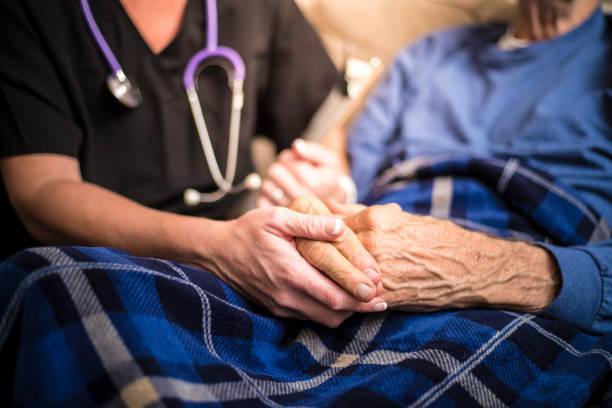Palliative care (Including Cancer and End of life care) is aimed at optimizing the quality of life and reducing suffering, among people with life-limiting, serious, complex, and often life-threatening or terminal illnesses, but it does not always mean you or your loved one are actively dying.
It is a special plan of care that is meant to relieve pain, provide comfort & dignity and improve the quality of life of the person being cared for. This includes active and compassionate care of patients who are in the last days or months of their life, but also provides care earlier in terminal illnesses especially if there are symptom-management issues. Palliative Care can be added as a treatment plan when someone is in the early stages of an illness and is still receiving treatment to help or cure the illness they have.
 The goal of palliative care is to help patients live as well as possible, by enhancing their quality of life and maintaining as much of their functioning as possible and providing relief of physical, emotional, psychological, and spiritual suffering.
The goal of palliative care is to help patients live as well as possible, by enhancing their quality of life and maintaining as much of their functioning as possible and providing relief of physical, emotional, psychological, and spiritual suffering.
The words Palliative Care can be scary. You and your loved ones may think that you will pass away soon but that is not always the case. Clear and honest communication is a key. Patients want to know: What is happening? What their future holds? They can choose how they want to be looked after, and how to spend their remaining time and energy. They have a right to know
Palliative care is usually for patients:
•Cancer Patients
•ALS and MS
•Renal Failure, Liver failure, cardiovascular, and respiratory disease
•AIDS
•Stroke
•Multi-organ Failure
Symptom management skills are an important part of the medical team’s role but also needs to be clearly communicated to the carers on duty, so that they can pick up where the doctors / nurses have left off. Common symptoms requiring management are Pain, Nausea, vomiting, Dyspnea (Shortness of breath), Bowel Care, Delirium (Confusion), etc.
Dignity concerning Care is a very valuable element. Our attitude, behaviours, Compassion, and dialogue tells them they are safe, secure and that we genuinely care about them, and Psychosocial care includes discussions about the shock of the diagnosis, of fears for the future, family support, grief & bereavement, and support with spiritual issues.
We work closely with your medical team, to offer the best possible support to enhance your journey to recovery or pave the way of your loved one’s journey to the end of their lives, with love, comfort, companionship, and supportive care.
Benefits of Palliative Care at home:
1. Families and their loved ones receive individualized, personal attention and dedicated support, with no distractions.
2. Provides Pain and Symptom control thereby reducing hospital visits & improves your quality of life (Your carers work in conjunction with your medical team)
3. Allows the patient to convalesce by being surrounded by love, family and friends
4. It’s easier for patients to understand treatment plans with a dedicated, personalized care team.
5. Puts the patients needs, desires, goals & Decisions first – they are a priority.
















